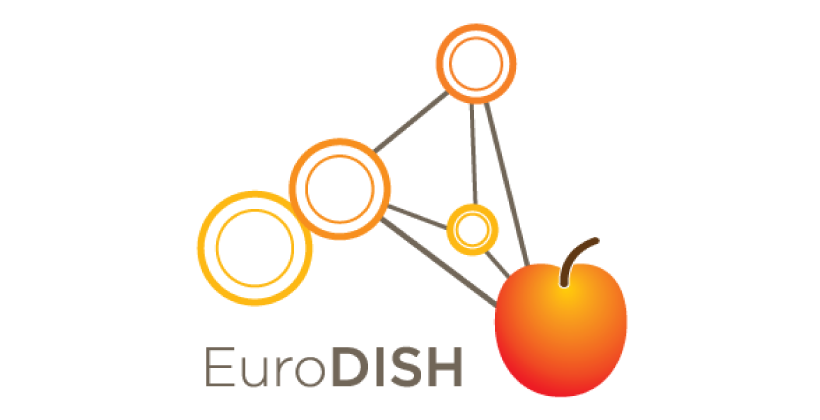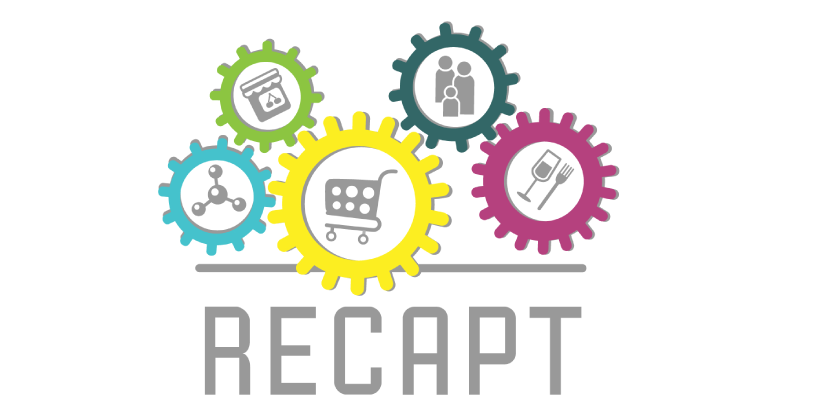Europe needs a better infrastructure for food and health research (EuroDISH results)
Last Updated : 19 June 2015EuroDISH, a three-year EU-funded project (Sep 2012-Aug 2015), has mapped and defined the infrastructures in four areas of research related to food, nutrition and health. The project identified the gaps and needs of infrastructures required to advance food and health research. EuroDISH has produced a roadmap to develop a research infrastructure by 2025 that will connect and overarch existing infrastructures across the related fields.
What are research infrastructures?
Cutting-edge and high quality research is vital to better understand the relationship between food, nutrition and health, and progress the development of effective strategies to decrease diet-related health issues. Research infrastructures (or RIs for short) are the facilities, resources or services that support the scientific community to conduct top-level research. They include unique data management, training of staff, professional networks, knowledge transfer, major buildings, equipment and instruments and knowledge-containing resources such as e-platforms and data banks. RIs facilitate the research community in sharing and harmonising data, instruments, methodologies, avoid duplication, and increase impact.
Research infrastructures for studying food and health on the map
EuroDISH mapped and defined pan-European RIs in four areas of research related to food, nutrition and health; identified as ‘DISH’:
- Determinants: What determines consumers’ food and lifestyle choices,
- Intake: What exactly consumers’ eat and drink,
- Status: Nutrient levels and functions in the body,
- Health: The function of the body as a whole.
The following gaps and needs were identified:
- RIs in the research field of ‘status’ (S) and ‘health’ (H) are emerging.
- There are major opportunities to improve RIs in the research field of ‘determinants’ (D) related to intake of food.
- There is no specific RI that serves the needs of the food and health research community over the DISH research fields as a whole.
Linking up European research infrastructure
The needs of a RI for the study of food and health were further discussed with stakeholders in interviews and workshops. While the agricultural and healthcare sectors have advanced RIs to perform cutting-edge science, the relationship between food, nutrition and health requires more synchronisation. Therefore, the project identified the need for a European RI that connects existing RIs, and that overarches the different domains (‘Determinants, Intake, Status and Health’) — also known as the DISH-RI.

Figure 1. A visual representation of the EuroDISH proposal - DISH-RI: Data, tools and services connecting the DISH domains in the food and health area
Construction of this RI is needed, for example, to enable research for better understanding the behaviour of consumers concerning food intake and lifestyle (the ‘determinants’) in relation to nutrition and health, including emerging opportunities in ICT and neuroscience. The link-up of standards and data on the intake of food and the determinants of food choice will enable faster progress in understanding and improving dietary patterns for better health. Furthermore, it would help to connect research on food production to research on health, which could address societal challenges such as those related to health and wellbeing and climate change.
The benefits of the future research infrastructure
The main purpose of the DISH-RI will be to support the research community by integrating the currently fragmented data and tools, existing and/or needed under the different DISH domains. It will also provide services that support scientists and stakeholders for education and capacity building. The DISH-RI will not only support the research community, but also policy makers and professionals, while increasing the impact of public health nutrition strategies and improving the health of all Europeans. Private partners will be involved as providers of data and as users of the services of the RI, to foster product innovation and strengthen competitiveness. It will also benefit societal organisations and professionals by improving research and evidence to support their strategies and advice.
Case studies
The project’s work entailed two case studies on relevant RIs. The first case study focused on the integration of two major existing platforms: GloboDiet, a tool for recording food consumption data, and the EuroFIR Food Data Composition Platform (nutrient and other food components). This integration is relevant to enhancing comparable dietary assessment and monitoring throughout Europe. These integrated platforms will facilitate future international studies by standardising dietary methodologies and allowing comparison of results among countries and across projects over time. Further aims are to improve cost-effectiveness in countries with limited local technical resources and skills in dietary assessment, to promote independence and flexibility, and to simplify communication and data synchronisation and (or) exchange.
The second case study looked at a mechanistic nutrition RI, which aims to uncover the mechanisms of action in the nutrition field, by sharing research and clinical data related to the effects of food components or complete diets on human health. Several gaps in the current infrastructure were identified. For example, development of descriptions and means to combine across standards, data processing for technologies specific to nutrition like human metabolomics (the study of all products formed in and necessary for metabolism within the body) and descriptions to communicate laboratory results that have not yet been fully processed. The need for multidisciplinary approaches and advanced technologies, such as those employed in nutritional systems biology, were also highlighted as particularly important for advancement.
Organisation and governance
The EuroDISH project proposes a virtual RI, with a structure based upon the ‘hub-and-spokes’ model. With a central hub that will be connected to expertise networks in different countries. Fragmented data from public and private sources will be brought together and integrated for stakeholders to use. An ICT platform will support standardisation, talking similar languages and using comparable formats for data, to better connect research. A central access point will provide services to researchers, stakeholders, and related RIs. In addition, a governance structure will provide the conditions for access for public or private partners, such as membership, ownership, privacy, and flexibility for researchers to innovate by sharing data. It will remain flexible and adaptive to developments in the societal and technological environment.
A roadmap towards more connected food and health research
The EuroDISH project has created a conceptual design of the DISH-RI, and a roadmap showing the stages and actions needed for its development. The goal is for the DISH-RI to be fully operational within 10 years, for which stakeholder support as well as funding at both member state and EU level is required. This concept was presented to stakeholders at the Final EuroDISH Conference held at the Expo Milano in the EU Pavilion, on 15 May, and summarised in the Milano Milestone. Participants of the workshop were invited to use this document as a first step towards the DISH-RI and to become part of the movement of innovation through collaboration.
.jpg)
The design phase includes an in depth analysis of preconditions to make the RI a success (such as funding, governance, legal structure, technical management). Research projects contributing to the aims of this RI will take forward specific aspects of the RI. An upcoming project in this direction is RICHFIELDS, a “Research Infrastructure on Consumer Health and Food Intake for E-science with Linked Data Sharing”, funded by Horizon 2020 and expected to commence in October 2015. RICHFIELDS aims to fill in the gaps identified by EuroDISH in research of the ‘determinants’ of consumer behaviour related to food and health. It will produce a RI that connects data on consumers’ food purchases, preparation and consumption to existing RIs and virtual lab facilities.
In the ‘status’ and ‘health’ domains crucial steps are being taken in the JPI-HDHL ENPADASI Project (Joint Programming Initiative 'A healthy diet for a healthy life', European Nutritional Phenotype Assessment and Data Sharing Initiative) to further develop the mechanistic nutrition RI that was tested in EuroDISH case study 2. This RI, originally named dbNP (Nutritional Phenotype database), was initially developed by NuGO (Nutrigenomics Organisation). It is an advanced computational infrastructure designed to handle nutrigenomics datasets, to support the study of how individual genetics interacts with diet. In the intake (I) domain, developments from the EuroDISH case study 1 on Pan EU nutrition surveillance need to be continued and expanded in the GloboDiet initiative.
The European Strategy Forum on Research Infrastructures (ESFRI) roadmap identifies new RIs of pan-European interest to meet the long term needs of the European research communities, covering all scientific areas. EuroDISH submitted the proposed DISH-RI for the new ESFRI roadmap 2016-2018.
The DISH-RI will link knowledge of what determines consumers’ food and lifestyle choices to what is known about people’s dietary intakes, their nutritional status, and their overall health, to improve strategies for a healthier future.
Further information
http://www.eurodish.eu
Read the Milano Milestone: A declaration of the EuroDISH results and discussion points on future needs, which was presented at the World Expo Milano, May 15th 2015.
Be part of the EuroDISH network, join the LinkedIn group.
The project EuroDISH (Studying the need for food and health research infrastructures in Europe) has received funding from the European Union’s Seventh Framework Programme for research, technological development and demonstration (contract n°311788). EuroDISH is led by Wageningen UR.






